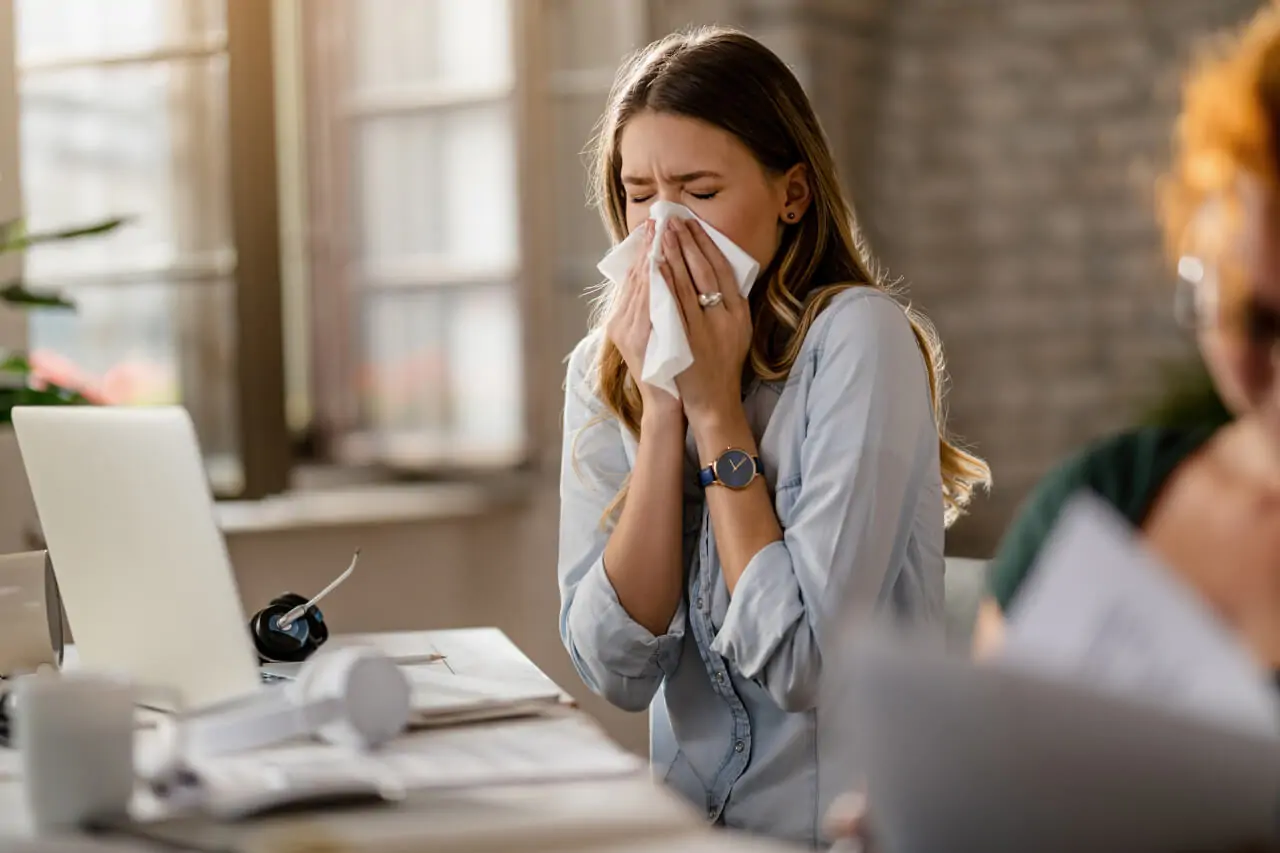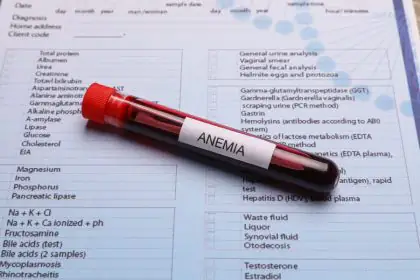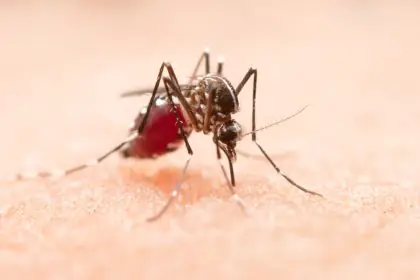A sinus infection, also known as sinusitis, refers to the inflammation of the sinuses – the hollow air spaces located behind the cheekbones, forehead, and nasal bones.
These sinuses are usually filled with air, but when they become blocked and filled with fluid, bacteria, or viruses, they can lead to a sinus infection.
How it Happens
A sinus infection, or sinusitis, can occur when the nasal passages and sinuses become inflamed, leading to blockages and the accumulation of fluid or mucus.
The most common causes of sinus infections include:
Viral Infections
Most sinus infections are caused by viral infections, such as the common cold or flu.
These viruses can irritate the nasal lining and cause inflammation, leading to a sinus infection.
Bacterial Infections
In some cases, a bacterial infection can develop in the sinuses.
This usually happens when there is a pre-existing viral infection that causes nasal congestion and inflammation, creating an environment favorable for bacterial growth.
Allergies
Allergic reactions to substances like pollen, dust mites, or pet dander can also trigger sinusitis.
The body’s immune response to these allergens can cause inflammation and blockage of the sinuses.
Nasal Polyps
Nasal polyps are small, noncancerous growths that can develop in the nasal passages or sinuses.
These growths can restrict the airflow and promote the accumulation of mucus, leading to sinus infections.
Structural Abnormalities
Certain anatomical irregularities, such as a deviated septum or narrow sinus passages, can make it easier for infections to occur.
These abnormalities can obstruct the drainage of mucus from the sinuses and create favorable conditions for bacterial growth.
Symptoms
The symptoms of a sinus infection, or sinusitis, can vary depending on the severity and duration of the infection.
Common symptoms include:
Facial Pain and Pressure
One of the most noticeable symptoms of a sinus infection is pain and pressure in the face, particularly around the eyes, cheeks, forehead, or nose.
This pain may worsen when bending forward or lying down.
Nasal Congestion
Sinusitis often causes nasal congestion, making it difficult to breathe through the nose.
This congestion may be accompanied by a feeling of fullness or heaviness in the nasal passages.
Thick Nasal Discharge
A sinus infection can produce thick, discolored nasal discharge that may be yellow or green.
This discharge may drain down the back of the throat, leading to a sore throat or cough.
Reduced Sense of Smell and Taste
The inflammation and congestion in the sinuses can affect the sense of smell and taste, causing a noticeable decrease in these senses.
Headache
Sinus headaches often accompany sinusitis and are typically felt in the forehead or around the eyes.
The pain may be dull or throbbing and worsen with movement or pressure.
Toothache
Inflammation in the sinuses can sometimes cause referred pain, leading to a toothache.
The upper teeth, particularly those close to the sinus cavities, may be affected.
Fatigue
Sinus infections can cause fatigue and a general feeling of being unwell.
This may be due to the body’s immune response to the infection.
How it is diagnosed
A sinus infection, or sinusitis, is typically diagnosed based on the evaluation of symptoms and a physical examination by a healthcare professional.
The process of diagnosing a sinus infection may include the following:
Medical History
The healthcare professional will begin by asking about your medical history and symptoms.
They may inquire about the duration and frequency of your symptoms, any triggers or previous episodes, and any factors that may contribute to sinusitis, such as allergies or nasal polyps.
Physical Examination
A physical examination will be conducted, focusing on the nasal passages, sinuses, and facial areas.
The doctor may examine your nasal passages using a nasal speculum or lighted instrument to assess for any visible signs of inflammation, polyps, or blockages.
Symptom Assessment
The doctor will evaluate your symptoms, such as facial pain and pressure, nasal congestion, nasal discharge, and reduced sense of smell.
The presence and duration of these symptoms help determine the likely diagnosis.
Additional Tests
In some cases, further diagnostic tests may be recommended to confirm the diagnosis or to identify underlying causes. These tests may include:
- Sinus Imaging:
A CT scan or MRI may be ordered to provide detailed images of the sinuses and detect any abnormalities or the extent of inflammation.
- Nasal Endoscopy:
A nasal endoscope, a thin flexible tube with a camera, may be used to examine the nasal passages and sinuses more closely, looking for signs of inflammation, polyps, or other abnormalities.
- Allergy Testing:
If allergies are suspected as a contributing factor, allergy testing may be conducted to identify specific allergens that could be triggering sinusitis.
Risk Factors
Several risk factors can increase the likelihood of developing a sinus infection, or sinusitis.
These risk factors include:
Allergies
Individuals with allergies, such as hay fever or allergic rhinitis, are more prone to developing sinusitis.
Allergic reactions can lead to inflammation and blockage of the sinus passages, creating an environment conducive to infection.
Structural Abnormalities
Some individuals may have structural abnormalities of the nose or sinuses that increase their risk of developing sinus infections.
Examples include a deviated septum (a shifted nasal partition) or nasal polyps (small growths in the nasal passages).
Nasal Obstructions
Conditions that cause nasal obstructions, such as enlarged adenoids or tumors, can hinder proper drainage of the sinuses and contribute to the development of infections.
Immune System Weakness
A weakened immune system due to certain health conditions (e.g., HIV/AIDS, diabetes) or medications (e.g., immunosuppressants) can impair the body’s ability to fight off infections, including sinus infections.
Respiratory Infections
Pre-existing respiratory infections or frequent upper respiratory infections (e.g., common cold, flu) can lead to inflammation and congestion in the nasal passages, increasing the risk of developing sinusitis.
Environmental Factors
Exposure to environmental irritants, such as cigarette smoke, air pollution, or chemicals, can irritate the nasal passages and sinuses, making them more susceptible to infections.
Dental Issues
Certain dental conditions, such as infected teeth or untreated dental abscesses, can extend into the sinuses and cause sinus infections.
It is essential to be aware of these risk factors, as they can help identify individuals who may be more prone to sinus infections.
Taking appropriate preventive measures, treating underlying conditions, and managing symptoms promptly can help reduce the risk of developing sinusitis.
Treatments
The treatment of a sinus infection, or sinusitis, depends on its cause, duration, and severity.
The following are common treatment options:
Symptomatic Relief
- Over-the-counter pain relievers:
Nonsteroidal anti-inflammatory drugs (NSAIDs) like ibuprofen or acetaminophen can help alleviate facial pain, headache, and fever associated with sinus infections. - Nasal decongestants:
Nasal sprays or oral decongestants can temporarily relieve nasal congestion and improve the flow of mucus. - Saline nasal irrigation:
Rinsing the nasal passages with a saline solution can help clear mucus, reduce inflammation, and promote sinus drainage.
Allergy Management
If allergies are contributing to chronic sinusitis, allergy testing and subsequent management (avoiding allergens, medications like antihistamines or corticosteroids, immunotherapy) may be recommended to reduce inflammation and prevent recurrent infections.
Nasal Corticosteroids
Prescription nasal sprays containing corticosteroids may be prescribed to reduce inflammation and swelling in the nasal passages, promoting better sinus drainage and relieving symptoms.
Surgical Intervention
In cases of severe or chronic sinus infections that do not respond well to other treatments, surgical intervention may be considered.
Procedures such as functional endoscopic sinus surgery (FESS), septoplasty, or sinus balloon dilation may be performed to improve sinus drainage, correct structural abnormalities, or remove nasal polyps
Home Remedies
Here are five home remedies that can help alleviate symptoms and promote sinus infection relief:
Steam Inhalation
Bring a pot of water to a boil and remove it from the heat source.
Place a towel over your head, lean over the pot, and inhale the steam gently. Be cautious not to burn yourself.
Steam inhalation can help relieve nasal congestion, reduce inflammation, and promote sinus drainage.
Nasal Irrigation
Use a saline solution or a neti pot to flush out the nasal passages.
This helps moisturize the sinuses, remove mucus, and reduce congestion.
Ensure that you use sterile or properly boiled water to prepare the saline solution to avoid further irritation.
Warm Compresses
Apply a warm compress over your sinuses to alleviate facial pain and pressure.
Soak a clean washcloth in warm water, wring out the excess moisture, and place it over your face, focusing on the affected sinus areas.
This can help relieve discomfort and promote blood circulation in the sinuses.
Stay Hydrated
Drinking plenty of fluids, especially warm liquids like water, herbal teas, or clear broths, can help thin the mucus in the sinuses and facilitate drainage.
Good hydration also supports overall immune health.
Elevate Your Head
When sleeping or resting, use an extra pillow or adjust the angle of your bed to elevate your head.
This can help reduce nasal congestion and promote better sinus drainage, providing relief from discomfort.
If symptoms persist or worsen, it is important to consult a healthcare professional for proper diagnosis and treatment.
Conclusion
A sinus infection, also known as sinusitis, is the inflammation of the sinuses that can be caused by various factors such as viral or bacterial infections, allergies, nasal polyps, or structural abnormalities.
The symptoms of a sinus infection commonly include facial pain and pressure, nasal congestion, thick nasal discharge, reduced sense of smell, headaches, and fatigue.
Diagnosing a sinus infection involves a medical history review, physical examination, and assessment of symptoms.
Additional tests such as sinus imaging, nasal endoscopy, or allergy testing may be conducted if needed to confirm the diagnosis or identify underlying causes.
Prompt medical attention is important to ensure an accurate diagnosis and appropriate treatment.
With proper diagnosis, sinus infections can be effectively managed through a combination of treatment approaches, which may include nasal decongestants, saline nasal rinses, pain relievers, (for bacterial infections), and management of underlying factors such as allergies or structural abnormalities.
It is crucial to follow the advice of a healthcare professional and complete the prescribed treatment course to alleviate symptoms and prevent complications.
If you suspect a sinus infection or experience persistent or severe symptoms, it is recommended to consult a healthcare professional for evaluation and guidance.
By understanding the causes, symptoms, and diagnostic processes involved in sinus infections, you can take proactive steps to identify and address the issue promptly, promoting better sinus health and overall well-being.
FAQs
What is a sinus infection?
A sinus infection, or sinusitis, is the inflammation of the sinuses caused by various factors such as infections, allergies, or structural abnormalities.
What are the symptoms of a sinus infection?
Symptoms of a sinus infection include facial pain, nasal congestion, thick nasal discharge, reduced sense of smell, headaches, and fatigue.
How is a sinus infection diagnosed?
Sinus infections are diagnosed through a combination of medical history review, physical examination, and symptom assessment. Additional tests like imaging or endoscopy may be conducted if necessary.
What are the risk factors for sinus infections?
Risk factors include allergies, structural abnormalities, nasal obstructions, weakened immune system, respiratory infections, and dental issues.
What are the treatments for sinus infections?
Treatments may include symptomatic relief with pain relievers and nasal decongestants, (for bacterial infections), allergy management, nasal corticosteroids, warm compresses, and for severe cases, surgical intervention.
Are there any home remedies for sinus infections?
Yes, home remedies include steam inhalation, nasal irrigation, warm compresses, staying hydrated, and elevating the head while sleeping.
When should I see a healthcare professional for a sinus infection?
If symptoms persist for more than 10-14 days, worsen, or if there is severe pain or high fever, it is advisable to seek medical attention promptly.
Can sinus infections be prevented?
While complete prevention may not be possible, steps like practicing good hygiene, managing allergies, avoiding environmental irritants, and practicing nasal irrigation can help reduce the risk of sinus infections.





